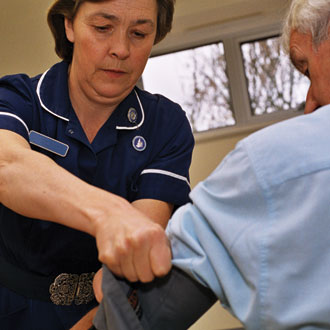GP appointment numbers to be cut by over a quarter under regional plans

NHS managers in one area of England are planning to reduce the number of GP appointments by over a quarter by sending more patients to other healthcare professionals.
The regional blueprint to ensure NHS services are sustainable by 2020/21 across Bristol, North Somerset and South Gloucestershire (BNSSG) says 27% of patients now consulting GPs will be treated by physiotherapists, nurses and pharmacists instead.
It also aims to reduce numbers of home visits, surgery visits and outpatient appointments by up to 15% by using home monitoring and remote consultation.
BNSSG’s strategy forms part of its Sustainability and Transformation Plan (STP), which outlines how providers and commissioners will improve health care quality and financial stability as directed in the Government’s Five Year Forward View.
The news comes as STPs featured heavily in the news this week, including revelations of planned hospital closures and a BMA analysis finding areas require at least £9.5bn upfront cash injection if they are to be able to make healthcare provision sustainable.
The plan says that seven-day multi-disciplinary team working will be introduced across a primary care system based on ‘prevention, early intervention and self-care’, integrated primary and community care and acute care collaboration. Meanwhile, GPs will operate in ‘integrated clusters’.
The plan describes how demand for GP services in the region rose by 13% between 2008 and 2013/14, but the STP argues it can absorb a further predicted rise in demand for primary care of 12% by 2020/21 through its new strategy. The region is already piloting a system using multi-disciplinary teams to cut GP workload.
The plan says: ‘[We will] reduce the number of consultations conducted by GPs by up to 27% through diversion of work to more appropriate MDT members and non-clinical services.
‘[We will] decrease the number of home visits, surgery visits and outpatient appointments by up to 15% through the use of home monitoring and remote consultation.’
But local GP leaders said the plan was unlikely to keep general practice sustainable against predicted dwindling GP numbers in the region.
Avon LMC chair Dr Mark Corcoran said: ‘I have no idea where they get that 27% figure from. It has no basis in research and it feels like they have plucked it out of the air.
‘It’s likely there will be a reduction in GPs in the area and so there will not be a reduction in workload for those who remain. We all know there is a crisis in recruitment and retention. In the South West 30% of partners vacancies are unfilled. It’s one thing talking about making reductions, and it’s another thing actually doing it.’
A spokesperson for the STP area said: ‘The figures in the sustainability and transformation plan are estimates based on a range of information sources, from both local and national data. They provide a view of the scale of change we will need to achieve to arrive at a sustainable model of care across BNSSG.’
The area’s ‘do nothing’ deficit will be £305.5 million by March 2021, according to the STP. It has identified £138.9 million savings by this date, including a £11.6 million reduction to the cost of GP prescribing.
What are the sustainability and transformation plans proposing?
Pulse’s scrutiny of the 44 STPs have previously revealed how:











